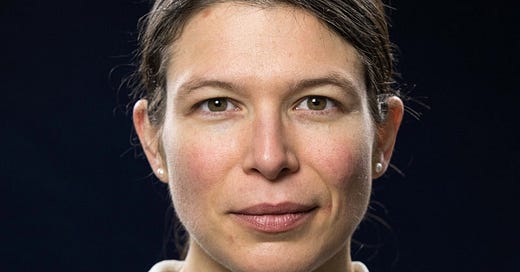Wendy Salkin (Stanford University), "Democracy Within, Justice Without: The Duties of Informal Political Representatives"
Noûs, 2021
By Wendy Salkin
Informal political representatives (IPRs) speak or act for others despite having been neither elected nor selected to do so by means of a systematized election or selection procedure. IPRs are everywhere. Some are internationally recognized leaders of social movements. The Rev. Dr. Martin Luther King, Jr., informally represented Black Americans throughout the Civil Rights Movement. Me Too Movement leader Tarana Burke informally represents sexual assault and abuse survivors. Greta Thunberg informally represents Generation Z or, as she has put it, “we who have to live with the consequences” of climate change. Others are just our neighbors and friends. But when they go to the city council meeting to give voice to our neighborhood’s shared interests, they become our representatives, too.
Informal political representation is an enormously powerful tool by which groups may develop political voice and exert political influence. Despite IPRs’ ubiquity and significance to our political lives, their role is conceptually puzzling, morally troubling, and markedly undertheorized. The central ethical challenge faced by informal political representation is this: IPRs can provide valuable political goods to those they represent. However, IPRs are neither institutionally nor procedurally constrained in the ways formal political representatives like legislators are. Moreover, IPRs are often the only political actors working to advance the interests of oppressed and marginalized groups, meaning these groups rely on their IPRs. As a result, relationships between represented groups and their IPRs can be inegalitarian and oppressive. How may IPRs permissibly undertake activities central to their roles without thereby wronging those they represent?
In “Democracy Within, Justice Without: The Duties of Informal Political Representatives” (Noûs, 2021), I examine skeptical arguments against informal political representation, particularly those concerning the informal political representation of oppressed and marginalized groups. Skeptics quite reasonably caution that IPRs can imperil the represented by being unauthorized (X, 1963), unaccountable (Reed, 1986), inaccurate (Cornish & Russwurm, 1827), elitist (Morton, 2021; Reed, 1986, p. 35), homogenizing (Cook, 2009), overpowering (Du Bois, 1903/1999), concessive (Du Bois, 1903/1999, p. 36), overcommitting (see, e.g., King, 1958/2010, p. 97), occlusive (Alcoff, 1991; Monbiot, 2013), inegalitarian (Salkin, 2022), and oppressive (Alcoff, 1991; Walzer, 1970). Such dangers lead many to the conclusion that the informal political representation of oppressed and marginalized groups is morally irremediable. I argue that, to represent permissibly, IPRs of oppressed or marginalized groups must satisfy two sets of sometimes conflicting duties: democracy within duties, which concern how the representative treats and relates to the represented, and justice without duties, which concern how the representative’s actions advance the aims of the representation.
There are concrete concerns at stake in defending informal political representation from skepticism. If the practice is to be pursued as a valuable form of political communication rather than simply abided begrudgingly as an ineradicable feature of political life, we must have something to say about the sources of its value. Accordingly, I identify and illustrate some of the distinctive and salient political goods IPRs provide to the oppressed and the marginalized: voicing groups’ neglected interests, making overlooked groups visible, stirring group consciousness in members of oppressed or marginalized pluralities, serving as communicative conduits between represented groups and their unresponsive lawmakers, and negotiating on represented groups’ behalves. The valuable features of informal political representation give us reason to defend it from skeptics.
So, can the practice be constrained so as to make it morally permissible for people to serve as IPRs of oppressed and marginalized groups? I argue that it can be.
To learn more about my research on informal political representation, listen to Myisha Cherry's UnMute Podcast, watch this video, or read about my book on the topic, Not Just Speaking for Ourselves: The Ethics of Informal Political Representation (under review)




